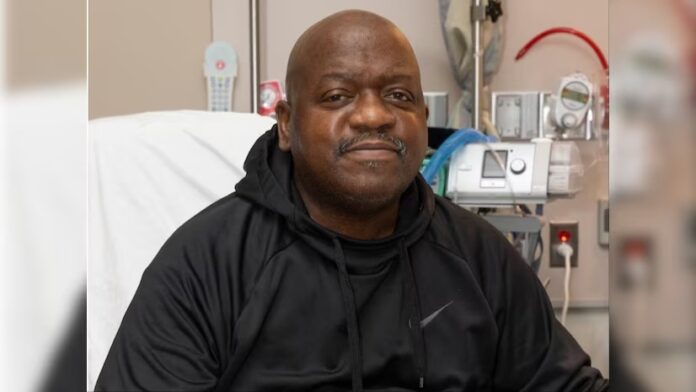Richard Rick Slayman, aged 62, etched his name in medical history on March 16 by becoming the first living individual to undergo such a transplant
Richard “Rick” Slayman, the first patient to receive a genetically edited kidney from a pig, died nearly two months after the surgery, as confirmed by his family and a statement from Massachusetts General Hospital in Boston, where the procedure took place.
The hospital has, however, clarified that there was no indication that Slayman’s death was directly linked to the recent kidney transplant.
Slayman, aged 62, etched his name in medical history on March 16 by becoming the first living individual to undergo such a transplant. He had been grappling with kidney disease for over ten years.Despite surviving a human kidney transplant in 2018, Slayman’s condition deteriorated. Consequently, doctors obtained approval from the Food and Drug Administration (FDA) to conduct the xenotransplant (a procedure involving the transplantation of organs from one species to another) under its “compassionate use” regulations.
This authorisation is typically granted when a patient faces a severe or immediately life-threatening illness or condition with no viable alternative treatments.
The surgery lasted four hours, during which researchers made 69 edits to the pig’s genetic code to reduce the risk of Slayman’s immune system attacking the transplanted pig’s organ.
In a statement to the media, Slayman’s family expressed deep sorrow over his passing but found solace in the fact that he served as an inspiration to many. They also extended their gratitude to the medical team for their tireless efforts, acknowledging that their relentless pursuit of the xenotransplant provided them with seven additional weeks with Slayman, creating cherished memories during that time.
“Their enormous efforts leading to the xenotransplant gave our family seven more weeks with Rick, and our memories made during that time will remain in our minds and hearts,” the statement said. “Millions of people worldwide have come to know Rick’s story,” it said.
“We felt — and still feel — comforted by the optimism he provided patients desperately waiting for a transplant,” the statement added.
Slayman’s story resonated with millions worldwide, offering hope to patients eagerly awaiting transplants. As he departed the hospital in April, he described it as “one of the happiest moments of his life” and eagerly anticipated spending quality time with his loved ones “free from the burden of dialysis that has affected my quality of life for many years.”
Following the surgery, the hospital reported that Slayman was “recovering well,” attributing the success of the surgery to extensive research, studies, and collaborative efforts.
Before undergoing the March operation, Slayman had reached a point of despair, reported The Washington Post. He expressed to doctors that he could no longer endure his suffering and did not wish to continue living in such agony.
“I just can’t go on like this. I don’t want to go on like this,” said Slayman.
According to The Associated Press (AP), over 100,000 individuals are awaiting transplants nationwide, with the majority being kidney patients. Tragically, thousands perish each year while awaiting a suitable donor.
The hospital also hailed Slayman and said that he “will forever be seen as a beacon of hope to countless transplant patients worldwide.”

